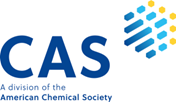Surgical Management and Short-Term Functional Outcomes in Moderate-to-Severe Traumatic Brain Injury: A Prospective Observational Study
Surgical Management and Outcomes in Moderate-to-Severe TBI
DOI:
https://doi.org/10.69750/dmls.02.03.0117Keywords:
Traumatic brain injury, craniotomy, decompressive craniectomy, surgical outcomes, intensive care stay, PakistanAbstract
Background: TBI remains a leading cause of death and disability worldwide, particularly in low- and middle-income countries where delays in prehospital stabilization and limited neurosurgical resources compromise outcomes.
Objectives: Evaluate demographics, surgical modalities, complications, and short-term outcomes of adults undergoing craniotomy or decompressive craniectomy for moderate to severe TBI at a tertiary care hospital.
Methods: Prospective observational cohort of 60 adults (≥18 years) with admission GCS ≤12 and CT evidence of intracranial hematoma or edema requiring surgery at Aziz Fatimah Hospital, Faisalabad, Pakistan, from January to December 2024. Data on demographics, injury mechanism, surgical approach, operative metrics, complications, ICU and hospital stay, in-hospital mortality, and Glasgow Outcome Scale (GOS) at discharge were collected. All surgeries were performed under general anesthesia with asepsis.
Results: Mean age 35.2 years; 70% male; road traffic accidents accounted for 60% of injuries. Craniotomy was performed in 45 cases (75%) and decompressive craniectomy in 15 (25%). Mean operative time was 120 minutes and mean blood loss was 450 mL. ICP monitoring was utilized in 46.7% of patients. Overall complication rate was 38.3%, led by surgical-site infection (16.7%) and seizures (13.3%). Mean ICU stay was 5.2 days and hospital stay was 12.4 days. In-hospital mortality was 16.7%, higher after craniectomy (26.7% vs. 13.3%). Favorable discharge (GOS 4–5) occurred in 66.7% of survivors. Admission GCS was 7.5 ± 2.3.
Conclusions: Timely surgical intervention in moderate to severe TBI in this setting yields acceptable mortality and favorable short-term outcomes in two-thirds of patients. Enhancing infection control, hemorrhage management, and neurocritical care capacity may further improve prognosis.
Downloads
References
G/Michael S, Terefe B, Asfaw MG, Liyew B. Outcomes and associated factors of traumatic brain injury among adult patients treated in Amhara regional state comprehensive specialized hospitals. BMC Emerg Med. 2023;23(1):109. doi:10.1186/s12873-023-00859-x
Prasad GL, Anmol N, Menon GR. Outcome of traumatic brain injury in the elderly population: a tertiary center experience in a developing country. World Neurosurg. 2018;111:e228-34. doi:10.1016/j.wneu.2017.12.034
Yathindra MR, Sabu N, Lakshmy S, Gibson CA, Morris AT, Farah Fatima S, et al. Navigating the role of surgery in optimizing patient outcomes in traumatic brain injuries: a comprehensive review. Cureus. 2024;16(10):e71234. doi:10.7759/cureus.71234
Umerani MS, Abbas A, Sharif S. Traumatic brain injuries: experience from a tertiary care centre in Pakistan. Turk Neurosurg. 2014;24(1):19-24. doi:10.5137/1019-5149.JTN.7080-12.1
Rahman FN, Das S, Kader M, Mashreky SR. Epidemiology, outcomes, and risk factors of traumatic brain injury in Bangladesh: a prospective cohort study. Front Public Health. 2025;13:1514011. doi:10.3389/fpubh.2025.1514011
Goel A, Bansal A, Rawat K. Head injury patients at a tertiary health care center. Int Surg J. 2022;9(10):1706-9. doi:10.18203/2349-2902.isj20222593
Dash HH, Chavali S. Management of traumatic brain injury patients. Korean J Anesthesiol. 2018;71(1):12-21. doi:10.4097/kjae.2018.71.1.12
Steinruecke M, Nair S, Venturini S, Siannis F, Hutchinson PJ, Kolias A, et al. Clinical characteristics and outcomes of traumatic brain injury in a high-volume tertiary care center in India: a prospective observational cohort study. Neurosurgery. 2023;93(2):223-32. doi:10.1227/NEU.0000000000003380
Khan KA, Choudhary M, Sinha VD, Gora N, Bairwa M. Predictors of outcome after traumatic brain injuries: experience of a tertiary health care institution in Northwest India. World Neurosurg. 2019;126:e699-705. doi:10.1016/j.wneu.2019.02.126
Yousefzadeh-Chabok S, Reihanian Z, Aghapour SM, Alijani B, Bijani E, Jafari S, et al. Outcome of surgical versus conservative management in old patients with traumatic brain injury. Iran J Neurosurg. 2022;8(1):27. doi:10.32598/irjns.8.27
Kalhoro A, Hassan S, Bokhari I, Brohi GM, Ahmed F, Ahmed T. The role of decompressive craniectomy in traumatic brain injury: an institutional experience in a tertiary care hospital. Natl J Health Sci. 2025;9(4):260-4.
Vaca SD, Kuo BJ, Nickenig Vissoci JR, Staton CA, Xu LW, Muhumuza M, et al. Temporal delays along the neurosurgical care continuum for traumatic brain injury patients at a tertiary care hospital in Kampala, Uganda. Neurosurgery. 2019;84(1):E19-29. doi:10.1093/neuros/nyy004
Rahman U, Hamid M, Shan Dasti M, Nouman T, Vedovelli L, Javid A. Traumatic brain injuries: a cross-sectional study at a tertiary trauma center in Punjab, Pakistan. Disaster Med Public Health Prep. 2023;17:e89. doi:10.1017/dmp.2021.361
Steinruecke M, Nair S, Venturini S, Hutchinson P, Kolias A, Joseph M. O202: Clinical characteristics and outcomes of traumatic brain injury in a high-volume tertiary hospital in India. Br J Surg. 2024;111(Suppl 2):znae046.63. doi:10.1093/bjs/znae046.063
Havill JH, Sleigh J. Management and outcomes of patients with brain trauma in a tertiary referral trauma hospital without neurosurgeons on site. Anaesth Intensive Care. 1998;26(6):642-7. doi:10.1177/0310057X9802600605
Adedire A, Rabiu TB, Faniyi AJ, Oyeniyi AG, Ojewuyi OO, Ogungbemi AO. Pattern of traumatic brain injury in multiply injured patients at a Nigerian tertiary hospital: a 5-year retrospective study. Egypt J Neurosurg. 2025;40(1):46. doi:10.1186/s41984-025-00389-7
Kumar A, Jaiswal S, Ojha BK, Chandra A, Srivastava C, Bajaj A, et al. Retrospective outcome analysis of geriatric traumatic brain injury treated at a tertiary care center in India. Indian J Neurosurg. 2024;14(1):34-43. doi:10.1055/s-0044-1788254
Maas AIR, Menon DK, Adelson PD, Andelic N, Bell MJ, Belli A, et al. Traumatic brain injury: integrated approaches to improve prevention, clinical care, and research. Lancet Neurol. 2017;16(12):987-1048. doi:10.1016/S1474-4422(17)30371-X






















